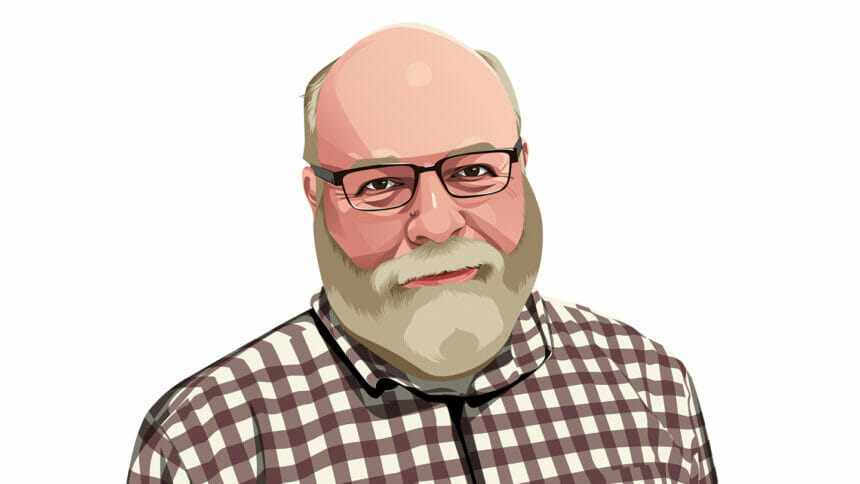
No one knows better than long-term care folks the unfortunate toll cognitive decline can take. So if you’re like me, and I wouldn’t wish that on anyone, you’re always interested in ways to keep your brains in tip-top, future-proofing shape.
Unfortunately, if McKnight’s headlines are any indication, getting fantastic sleep in adequate quantities is hugely important to that quest, maybe even more so than vitamins, vegetables or vodka, which I choose to believe is technically a vegetable.
Sadly, among the many things I do poorly, sleeping is the worst. As I’ve probably mentioned before, nothing wakes me up like going to bed. When I tap on the Sleep icon each morning, I can hear my Apple Watch yawn, and the sleep tracking graphs I religiously review look like seismic depictions of the San Francisco earthquake of 1906.
It’s a personal problem, is what I’m saying. I need professional help. But what I definitely didn’t need was the recent McKnight’s headline suggesting that loneliness and insomnia are linked. As a single person living alone, that’s way too much pressure. I wonder how well “Single, white, aging Canadian seeking nurturing partner to prophylactically prevent Alzheimer’s” is going to be received on Match.com.
In the unlikely event that I actually identify a foolish human willing to cohabitate with me, I expect the loneliness problem would persist, as I have long advocated that those who live together, even married people, should still have their own rooms. “It’s sad that the idyllic world of ’50s-era TV couples with their separate twin beds turned out to be such an unachievable utopia,” were my exact words, in this very publication.
Adding insult to injury is yet another headline, making the case that not getting enough sleep might negate the positive effects of exercise, which has often been touted as protective against cognitive decline. “We were surprised that regular physical activity may not always be sufficient to counter the long-term effects of lack of sleep on cognitive health,” said one of the study’s co-authors. But whatever. I didn’t want to exercise anyway.
So, to briefly summarize the important takeaways from this discussion: Loneliness causes insomnia, but in my case won’t solve it, and since I can’t sleep, exercise won’t do any good, but if I don’t exercise I’ll look pale and sickly and no one will agree to move in with me to help solve my loneliness/insomnia problem, which will then get progressively worse until eventually I’m forced to come live in your very fine Five-Star memory care facility.*
Vicious cycle, meet unsolvable conundrum.
In closing, yet another study reported recently in McKnight’s predicted that half the population of the United States will have a mental disorder by the age of 75. Is this solely from loneliness and lack of sleep? The article does not, or will not, say.
Just one more thing to keep me awake at night.
*Consider yourselves warned, and I strongly suggest that each long-term care operator in America take immediate steps to operate at full census for the next few years, until such time as the danger of my imminent admission has passed.
Things I Think is written by Gary Tetz, a two-time national Silver Medalist and three-time regional Gold and Silver Medal winner in the Association of Business Press Editors (ASBPE) awards program, as well as an Award of Excellence honoree in the APEX Awards. He’s been amusing, inspiring, informing and sometimes befuddling long-term care readers worldwide since the end of a previous century. He is a writer and video producer for Consonus Healthcare Services in Portland, OR.
The opinions expressed in McKnight’s Long-Term Care News guest submissions are the author’s and are not necessarily those of McKnight’s Long-Term Care News or its editors.
Have a column idea? See our submission guidelines here.




